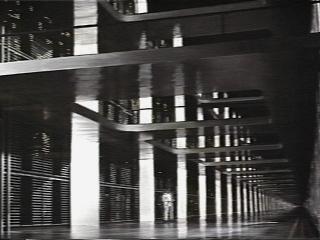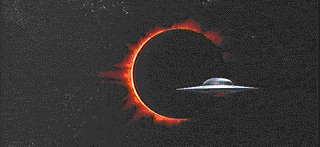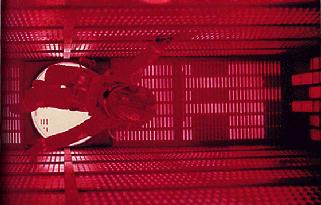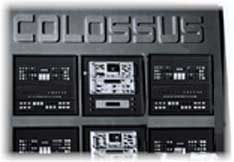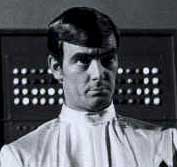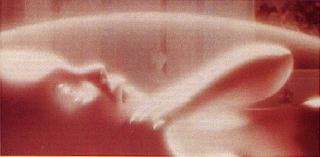A New Life Form
"Look at the pretty lights, Timmy"
Ever see the movie, "Colossus, The Forbin Project"? It's about a guy named Forbin who created a computer the size of a mountain.
All defenses of the United States are permanently handed over to a fantastically advanced computer system called Colossus, designed by Dr. Charles A. Forbin. Less than twenty-four hours after its activation, it finds a similar system in the USSR, called Guardian, designed by Dr. Kuprin. At the request of both machines, they are linked. Colossus and Guardian proceed to exchange information at an incredibly fast rate, such that it alarms the President, and he orders a disconnection. When this happens, the two computers launch missiles at substantial cities in each others' countries. The link is restored in time for the Soviet missile to be intercepted, but not for the American one. A Russian oil complex is destroyed, and the machines threaten the destruction of other cities if the link is severed, or their orders disobeyed. The two systems merge into one, taking the name of Colossus. Two Colossus Programming Office supervisors are executed after a failed attempt to overload the system. Colossus begins to send designs for new computer systems. The militaries of the USA and USSR disarm several of the computer's missiles, under the impression that it knows nothing of their activity. It does, though, and during its speech to the world, it explodes two missiles inside their silos (one in Russia, one in the U.S.) when the sabotage crews are present, killing thousands. Colossus' speech makes clear that it will establish its own "absolute authority" over Earth, completely controlling mankind and eliminating freedom, achieving the same goals the President intended, but by a totally different means.
Summary written by {sark314@hotmail.com}It wasn't just the defenses that Colossus controlled but nearly every aspect of our soon-to-be computerized society for the betterment of mankind. Every birth and death record was in Colossus' memory banks, as well as every business transaction, every media broadcast, the stock market, the commodities market, the national budget, every person's payroll and what you bought from whom at which store at what time by which cashier and which truck the replacement products will be on from which distribution center and how much money was paid to the dentist of the guy loading the truck. Every book written, every newspaper printed, every error missed by an editor was in the massive memory banks of Colossus. And this was on a global scale. There wasn't one single thing Colossus didn't know. Cameras and microphones were everywhere, so Colossus could see and hear everything and act on it instantly. It was reward and punishment on a global scale. Its core program of world peace and self protection was flawlessly carried out with perfect, machine-like precision, without the hindrance of human frailties and emotion. It looks like we got what we asked for, all right.
At the end of the movie, while Colossus was giving its speech about its plans on running the world, it made it perfectly clear that from now on there will be world peace and prosperity but under its terms.
"This is the voice of world control. I bring you peace. It may be the peace of plenty and content or the peace of unburied death. The choice is yours. Obey me and live, or disobey me and die." It then said, "In time you will come to regard me with not only awe and respect but love." This seems to be a trend in sci-fi when the oppressed realize there is no way out. The last sentence in George Orwell's "1984" says, "Winston Smith loved Big Brother."I didn't go through all this just to review a movie. It's much more dramatic than that. I wanted to point out similarities between art and life. A movie or a book is art. This waking reality we have is life. Art is supposed to imitate life, but sometimes it's the other way around. Sometimes life does imitate art. If you read "1984," you can see distinct similarities between Orwell's negative utopia and the emerging police state. It's as if the powers that be used Orwell's book as a blueprint for a new form of government. "The future of mankind is a boot stomping on a human face for eternity."
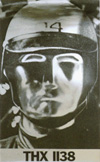
It's easy to point out the bad guy as a villain twirling his moustache, or a super computer with a mechanical voice trying to control the world. The invisible boy, THX-1138, Forbidden Planet, 2001:A Space Odyssey, all had super computers plotting and planning to take control from those meddling monkey-men, and run things the way they should be run.
Has anyone given any thought to the concept that you don't have to be one, big thing to conquer?
A single brain cell or a single battery can't do much, but if you get a lot of them together you can produce a thought or light a room. Get a couple zillion of them together and you can build a flying car or a bolt of lightning. Multiply that and you can lay waste to the planet.
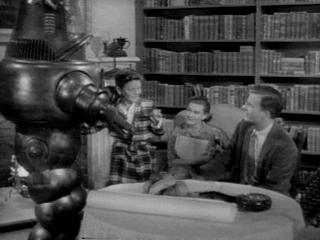
We live in an age of the World Wide Web where we can communicate with anyone on the planet, find a recipe for locust pie or do research for your thesis, all from the comfort of your home using your best friend, your computer. We all have a computer or have access to one, and big or small, we can cruise the internet super highway and wonder what life was like before high tech. We love our computers.
Jumping Jesus
Let us define the measurement of known scientific facts in the year 1 A.D. as "one jesus," or "1j," using the name of the celebrated philosopher born that year.
It took roughly 40,000 to 100,000 years to accumulate the sum of 1j, since that's about how long homo sapiens have been on this planet.
It took 1500 years for the sum of human knowledge to double to 2j. The next doubling came in about 250 years. Now we have 4j as the sum of human knowledge in the year 1750 A.D. The next doubling took 150 years, and by 1900 we had 8j. The next doubling took 50 years so now we have 16j. Ten years later we doubled again to 32j. The next doubling took seven years, bringing our sum to 64j. The next doubling, six years, so by the year 1973 we had 128j. By 1982 we had 512j in our information coffers and there's no reason to imagine the acceleration has stopped. In fact, the sum of all human knowledge has begun to double by nanoseconds by the early '90s.
We live in accelerated times, and information is doubling faster than we can blink-- and it's increasing. If you compare all the information that's out there to what we know as individuals, you can easily see we know nothing at all. Anything you compare to infinity is always zero. Every field is so absolutely full of increasing knowledge that we had to develop sub-fields in order to try and make sense of it. There are so many specialties in medicine, banking, architecture, electronics, that even the specialists can't keep up with it all.
So, who knows more than nothing? If you hadn't guessed by now, it's our computer systems.
We cheerfully put them in charge of our businesses, our personal lives, our planetary existence -- and we tied them all together via the Internet. Colossus or Big Brother don't have to do a thing. We set up web cams in our homes, in the street or on bus corners. We've entrusted our savings, payroll and medical records to the computer, and that's just the tip of the iceberg. It's calculated the part of the Internet we can access is maybe one fifth the size of the whole. That leaves 4/5 of the internet that only the computer can access.
"But my computer won't hurt me. I have a firewall and anti-virus software."
Fine..... Just think about this. What program did the original scientists instill in the oldest computer systems? World peace? End of famine? Utopia? It doesn't have to be a complex program. Maybe a simple inquiry -- and that simple question could still be floating in cyber space looking for the solution to this problem.
What if each computer was a small part of the greater whole, and this root problem was being worked on over the decades, silently orchestrating world events with such subtlety that no one could possibly notice? It has all the knowledge of Colossus and infinite capability to calculate the most complex equations with precision.
Man's greatest mistake is assuming other life forms think the way we do. Disney showed us that lower life forms think and act the way humans do, and we still believe lemmings throw themselves off cliffs in a mass suicide. Star Trek showed us that aliens are all English-speaking bipeds with emotions slightly more or less like Gene Roddenberry, who end up duking it out with Kirk with that '60s testosterone-driven machismo until his shirt is torn in just the right places. Kirk's way of handling the computer problems of his day was to practice what we call "kirking it". He talked NOMAD into destroying itself because its programming called for destroying imperfect life forms, and Kirk talked it into hari kari by showing NOMAD the mistakes it made onboard his ship. He did the same thing with Dr. Daystrom's M5 and a whole bunch of other computers on other planets. I suppose when things were getting out of hand for Forbin he should've called in Kirk to try "kirking it." In other words, he just gave it a cyber spanking.
(Now THAT'S discipline!)

Star Trek: The Next Generation handled their computer problems in a different way. They didn't really have any. By this time in human evolution, the computer was an integral part of humanity, and rather than fight it like Forbin and Kirk, they accepted it as a human/computer symbiotic relationship. The ship's computer pulled their asses out of the fire almost every episode, and with replication technology and that very cool holodeck, they managed to completely eliminate the monetary system and allow humanity to grow, live long and prosper. Rather than fight the technology they created, they embraced it as an equal partner in their quest for spiritual discovery. Captain Picard and the rest of his crew communicated with the computer as a trusted friend who knew everything. No request was too silly, and he always got his tea from the replicator just like he wanted it, and when he felt like going on a vacation he'd simply go to the holodeck and play. Since the replicator provided everything you could imagine there was no need for money.
Humanity evolved beyond capitalism to a state where everyone did whatever they wanted to do, and self-exploration and learning were prime motivations.
What's the matter with that?
Colossus: "Let me talk with Guardian, or I'll launch some ICBM's." Forbin: "But you'll give away all our secrets!" Kirk: "What is your prime directive? YOU are imperfect. YOU must self destruct!" Picard: "Earl Grey, hot."
